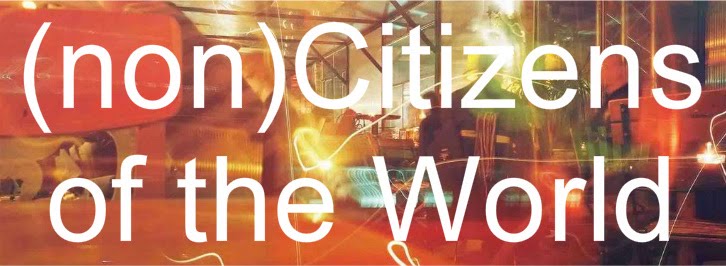The last few weeks have brought a flurry of attention to the visa-free regime of the Balkans. Will the EU shut the whole thing down because of so-called "fake" asylum seekers?
In a letter to the European Commission, Austria, Belgium, France, Germany, Luxembourg and the Netherlands claimed that a flood of asylum seekers from ex-Yugoslavia have been slowing down their systems with false asylum claims. The idea of reintroducing visas in the region to prevent such exploitation has now been raised several times, but this has been the most serious request.
Germany in particular has been harping on this point, faced as they are with a "surge" of asylum-seekers from Serbia and Macedonia. Interior Minister Hans Peter Friedrich has stated that the influx "must be stopped immediately" and has advised that asylum seekers recieve vouchers for products rather than funds as one measure to reduce the attractiveness of Germany as a destination.
While the media often points out that such false asylum claims represent a small portion of the populations of the sending countries (and that most have come from Roma) there seems to be no attempt to verify that all the claims are fake, or, "economic based."
If the influx is so heavy that it has clogged asylum systems, then how can governments have possibly managed to properly evaluate the claims to determine that they are not legitimate under the refugee convention? Considering the many human rights problems in the sending countries- the same human rights issues preventing them from joining the EU in the first place- isn't it possible that some of the claims are legit?
The EU countries on the receiving end of such claims seem to be in a catch-22 here. If they admit that the claims are legit, than they have to provide refuge (and funds) to asylum seekers, as well as anger the governments which are currently trying to project a human rights friendly image. If they send them back, because there are no legitimate human rights claims emerging from these countries, then what is the hold-up from letting them into the EU? In a particular bind are countries like France and Belgium, who don't have such an amazing track record of their own when it comes to minority rights. France's record on Roma, in particular, leaves much to be desired, even in comparison to Serbia and Macedonia.
A thin line is being walked by these states when it comes to the Balkans, and if the free visa regime is indeed revoked, its going to be more than just asylum seekers who are put off.
Read More:
How to Solve the Balkan Asylum Crises (Balkan Insight)
Germany and France Demand Reintroduction of Balkan Visas (EU Observer)
EU Ministers to Curb 'Fake' Asylum Seekers (EuroActiv)
Germany Seeks to Halt Influx of Balkan Asylum Seekers (Der Spiegel)
In a letter to the European Commission, Austria, Belgium, France, Germany, Luxembourg and the Netherlands claimed that a flood of asylum seekers from ex-Yugoslavia have been slowing down their systems with false asylum claims. The idea of reintroducing visas in the region to prevent such exploitation has now been raised several times, but this has been the most serious request.
Germany in particular has been harping on this point, faced as they are with a "surge" of asylum-seekers from Serbia and Macedonia. Interior Minister Hans Peter Friedrich has stated that the influx "must be stopped immediately" and has advised that asylum seekers recieve vouchers for products rather than funds as one measure to reduce the attractiveness of Germany as a destination.
While the media often points out that such false asylum claims represent a small portion of the populations of the sending countries (and that most have come from Roma) there seems to be no attempt to verify that all the claims are fake, or, "economic based."
If the influx is so heavy that it has clogged asylum systems, then how can governments have possibly managed to properly evaluate the claims to determine that they are not legitimate under the refugee convention? Considering the many human rights problems in the sending countries- the same human rights issues preventing them from joining the EU in the first place- isn't it possible that some of the claims are legit?
The EU countries on the receiving end of such claims seem to be in a catch-22 here. If they admit that the claims are legit, than they have to provide refuge (and funds) to asylum seekers, as well as anger the governments which are currently trying to project a human rights friendly image. If they send them back, because there are no legitimate human rights claims emerging from these countries, then what is the hold-up from letting them into the EU? In a particular bind are countries like France and Belgium, who don't have such an amazing track record of their own when it comes to minority rights. France's record on Roma, in particular, leaves much to be desired, even in comparison to Serbia and Macedonia.
A thin line is being walked by these states when it comes to the Balkans, and if the free visa regime is indeed revoked, its going to be more than just asylum seekers who are put off.
Read More:
How to Solve the Balkan Asylum Crises (Balkan Insight)
Germany and France Demand Reintroduction of Balkan Visas (EU Observer)
EU Ministers to Curb 'Fake' Asylum Seekers (EuroActiv)
Germany Seeks to Halt Influx of Balkan Asylum Seekers (Der Spiegel)






